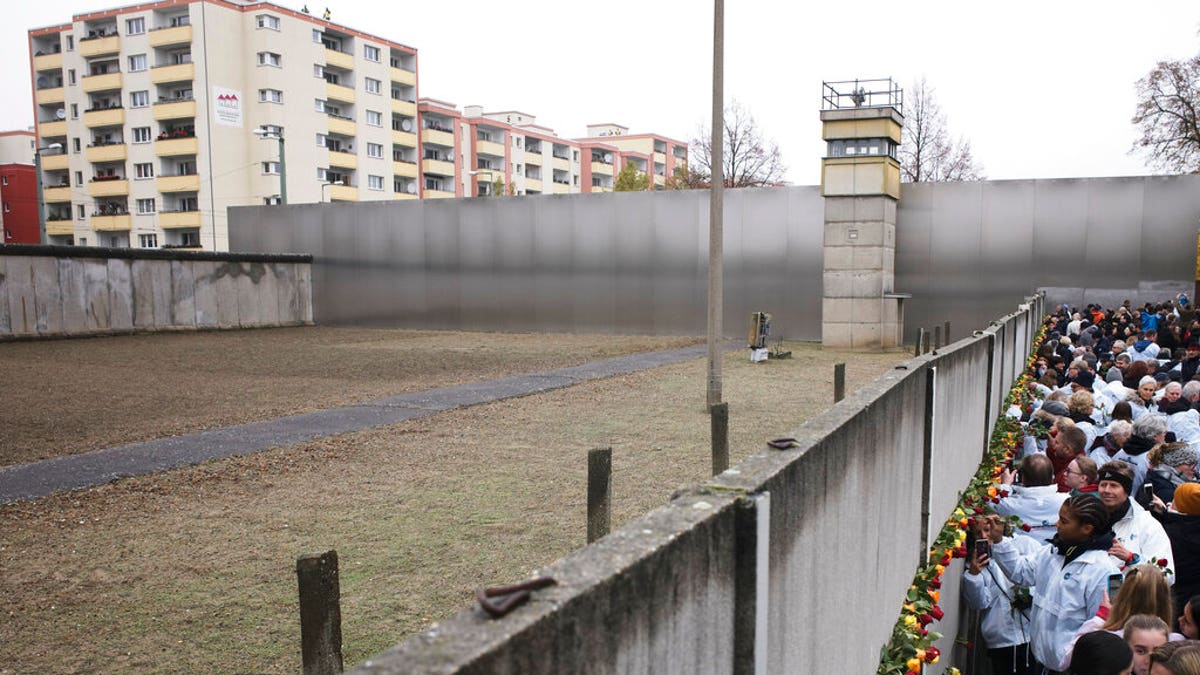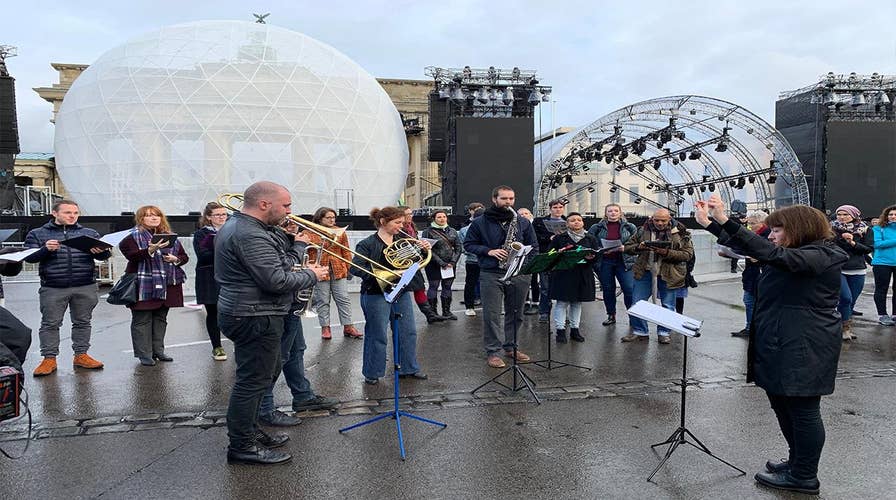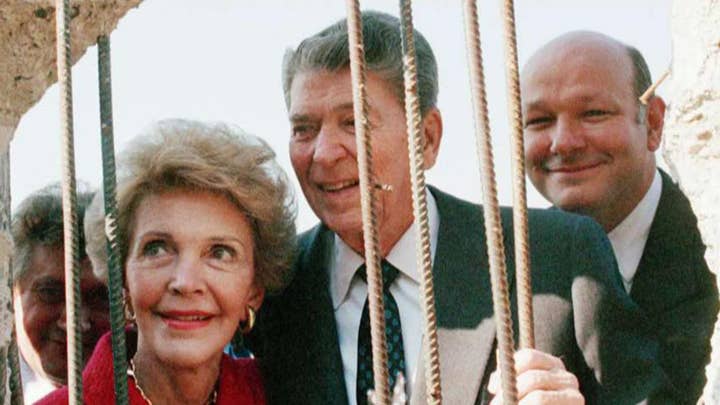U.S. artists mark the fall of the Berlin Wall
U.S. artists Lisa Bielawa and Sheryl Oring have spent a lot of time interviewing Berliners about their experiences before, during and after the fall of the Berlin Wall. For the 25th anniversary, Oring typed out postcards based on these oral histories, what people told her, in a project she called Maueramt For the 30th anniversary.
BERLIN - Mark König went home late at night on the 9th of November, or more likely it was already the 10th.
He was penniless, having spent every last Deutsche Mark he had on the party of all parties. People like König had to pick up the tab that night in 1989. There was no other way. Their fellow revellers’ currency was no good because they were East Germans who had flocked en masse to the Kurfürstendamm, West Berlin’s Fifth Avenue, the moment they heard the news that they could cross the Berlin Wall.
Recounting that night to Fox News, he said, “People started to hug each other and dance with each other. Nobody knew the name of the other person but they were hugging each other. It was a really special moment, a mood I have never felt before and to be honest I never felt after that.”
Thirty years later, Germany is reunified, a powerhouse country once again, but the story is not over. East Germans are still seeking answers for some of the bad things that happened to them. The Records of the State Security Service of the former German Democratic Republic — commonly called the Stasi Archives — is open to the public. But in the frantic final days of the regime, the secret police began tearing up files. The public moved on them, blocking further sabotage but the Stasi managed to fill 17,000 bags with shreds of paper.
GERMANY, ALLIES CELEBRATE 30TH ANNIVERSARY OF THE BERLIN WALL FALL
The Germans are putting them all back together. They want all who lived in former East Germany to be able to find out exactly what had been done to them.
Dagmar Hovestädt, the spokesperson for the archive, says toward the end of the regime there was less Stalinist-style repression and more complex psychological manipulation.
“They knew everything about people’s likes and dislikes, fears and joys, and used that against them based on an intense study of psychology,” she said. “If you arrest people there’s something you can show, the way the state crushes people. If you do it psychologically there’s nothing to show. It’s even harder to prove. That’s why looking at records today for many dissidents helps them find out how the state interfered in their lives.”
Things aren’t black and white. Some former East Germans say they believed in socialism and there were things about the old system that were good, like education and childcare, provided by the state. Fox News asked Ginga Eichler if her quality of life was better or worse before the fall of the Wall.
ROMINA BOCCIA: WHAT BANANAS TELL US ABOUT SOCIALISM AND THE FALL OF THE BERLIN WALL
“It depends what is quality of life,” she said. “If you just look for money, yes, I have a better quality now. But this is not enough for me. My main thing in life was never money.”
Eichler said she loves having her freedom and became disillusioned with East German system in the end, but she still believes that socialism has many merits.

An elderly man with a Soviet flag walks in front of remains of the Berlin Wall after commemorations celebrating the 30th anniversary of the fall of the Berlin Wall at the Wall memorial site at Bernauer Strasse in Berlin, Saturday, Nov. 9, 2019. The man, who would not give his name, walks around with the flag as a protest against capitalism. (AP)
All of this has been rich material for two Americans, composer Lisa Bielawa and artist Sheryl Oring. They have put on concerts this week in Berlin, based upon stories that Berliners told Oring on the occasion of the 25th anniversary of the fall of the Berlin Wall.
Oring told Fox News: “I set up with a typewriter in Bernauer Strasse where the Wall used to be and I invited people to share their memories or their thoughts, and it was quite an emotional experience to talk to so many Germans both from the east and the west but also from outside Berlin who came for that anniversary. People talking about leaving East Germany and never seeing their family again… People telling me also the day-to-day stories, of playing soccer and kicking it up against the Wall.”
AUTHORITARIAN GOVERNMENTS BLOCKING INTERNET IS NEW BERLIN WALL, SAYS US AMBASSADOR TO GERMANY
Bielawa set those memories to music.

People stuck flowers in remains of the Berlin Wall during a commemoration ceremony to celebrate the 30th anniversary of the fall of the Berlin Wall at the Wall memorial site at Bernauer Strasse in Berlin, Saturday, Nov. 9, 2019. (AP)
“People often express their feelings in ways that are a little more emotionally based when they sing," she said. "Rather than opinions, you get feelings from people so in a way I think my role here is to get people to explore their feelings in a way that they don’t necessarily need to nail them down.”
CLICK HERE FOR THE FOX NEWS APP
World leaders, from Chancellor Angela Merkel to President Trump, paid tribute to those feelings today, remembering the will of the Germans to again heal wounds in their history, but also reminding the world that the struggle for freedom is ongoing around the world.









































